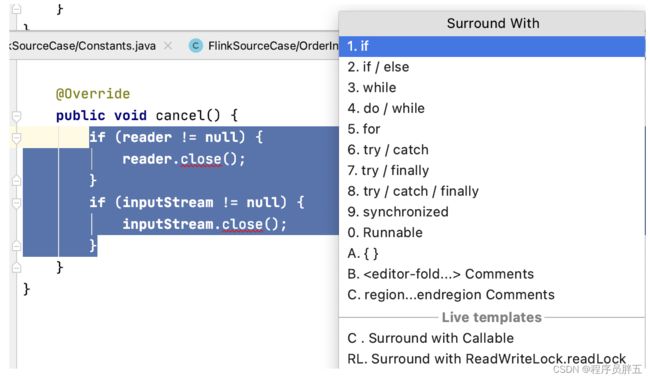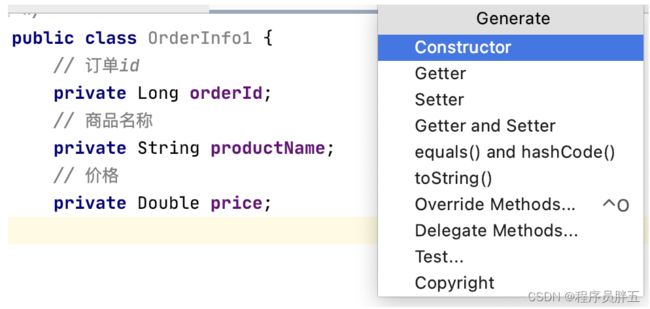- DevOps工具链概述
fenglei2020
网络服务器linuxdevops
1.DevOps工具链概述1.1DevOps工具链的定义DevOps工具链是支持DevOps实践的一系列工具的集合,这些工具覆盖了软件开发的整个生命周期,包括需求管理、开发、测试、部署和运维等各个环节。它旨在通过工具的集成和自动化,打破开发与运维之间的壁垒,实现软件的快速交付和持续改进。例如,在需求管理阶段,工具链中的需求管理工具可以清晰地记录和跟踪需求的变化;在开发阶段,代码管理工具能够支持团队
- 4.Python教程--项目部署篇(全)
花开如雨
笔记
Python人工智能总目录人工智能总目录网页链接文章目录Python人工智能总目录13、Python运维Day0113.1运维1.运维概述2.运维工具3.Linux常用命令4.周期性计划任务5.awk的使用14、Python项目部署Day0114.1项目部署1.概念2.项目部署(nginx+uwsgi+django)3.部署在线商城项目13、Python运维Day0113.1运维1.运维概述1、运
- 查了好几天的问题终于画上了句号
不像程序员的程序媛
javamybatis
问题背景:产品接到前方实施反馈9月02日有些订单查不到签名值,对于医院验签查不到签名值,就无法完成验签数据归档。问题追踪过程:1首先查数据库,发现订单id确实查不到对应的detail数据;第一直觉是否是阿里云dts数据迁移出了问题?因为超过12天数据,由rds数据库迁移到polardb中。2和运维确认了dts14号任务迁移是成功的。14号迁移创建时间在9月02日的数据;既然成功的,就断了念想,继续
- 13 | MySQL主从数据库同步是如何实现的?
_Rye_
后端存储数据库mysql
回顾我们之前讲MySQL相关的几节,会发现主从同步有多重要。解决数据可靠性的问题需要用到主从同步;解决MySQL服务高可用要用到主从同步;应对高并发的时候,还是要用到主从同步。我们在运维MySQL集群时,遇到的很多常见的问题,比如说,为什么从节点故障会影响到主节点?为什么主从切换之后丢数据了?为什么明明没有更新数据,客户端读到的数据还是变来变去的?这些都和主从同步的配置有密切的关系。不但要理解My
- Linux运维工程师基础面试题整理(三)
江湖有缘
运维工程师面试专栏运维linux服务器面试
Linux运维工程师基础面试题整理(三)1.文件inode号有什么用?2.文件的权限怎么设置与管理?3.如何SSH免密配置?4.如何快速部署一个web服务?5.如何更新Linux系统内核?6.centos中如何配置本地yum源?7.Linux防火墙如何简单配置?8.有哪些工具可以批量管理Linux服务器?9.Linux服务器怎么做到高可用和负载均衡?10.Linux服务器中数据如何高效备份?11L
- 云原生后端|实践?
dami_king
随笔后端云原生阿里云云CSDN开发云cloudnative
云原生(CloudNative)是一种构建和运行应用程序的方法,它充分利用云计算的优势,包括弹性、可扩展性、高可用性和自动化运维。云原生后端开发通常涉及微服务架构、容器化、持续集成/持续部署(CI/CD)、服务网格、不可变基础设施等概念和技术。一、云原生的核心概念1.微服务架构定义:将一个大型应用拆分成多个独立的小型服务,每个服务实现单一业务功能,并且可以独立部署、扩展和维护。优点:独立部署和扩展
- 什么是运维?运维主要做哪些工作?
牛奶咖啡13
运维/测试运维工程师什么是运维运维的工作内容
今天先探讨下运维主要做什么,至于需要的具体技能、需要会的(MySQL?Apache?python?)首先还是要重申一下,我们这里的运维不是指工厂设备维护,也不是办公IT支持,我们这里讨论的运维工作只限于大型业务系统的运维,比如阿里、美团、京东做运维的攻城狮们,需要过硬的技术、敏捷的头脑、还有,还有就是强悍的体魄。一、什么是运维运维顾名思义就是运行维护,运维工程师就是要做好生产系统的稳定运行维护工作
- 2024 年度技术总结:从实践到成长
XMYX-0
2024年度总结
文章目录2024年度技术总结:从实践到成长开篇回顾重点技术领域总结1.后端开发与数据库优化2.云原生与容器技术3.自动化运维与脚本开发4.前端与框架探索技术心得与反思展望与规划2024年度技术总结:从实践到成长开篇回顾回顾2024年,我围绕多个技术领域进行了深入学习与实践,从Python开发、云原生技术到运维工具,全年产出了丰富的技术内容。这些不仅帮助我在实际工作中解决了许多复杂问题,也进一步巩固
- IT运维很头疼 云络科技说不如包给他们
weixin_33755649
运维前端devopsViewUI
相声,相信很多人都喜欢,台上一个捧一个逗造就了一台戏。俗话说“三分逗,七分捧”,看似被抢尽风头的捧哏者反而扮演着更重要的角色。在IT界也有着这样一对关系——开发和运维。所谓“三分建设,七分运维”,一直以来默默躲在背后的IT运维部门,尽管无数次被企业轻视,还要遭受业务部埋怨,而一旦企业系统遭到考验,运维人员就得重装上任,赶忙“救火”。近几年,随着云计算等技术的落地,提升了效率的同时也增加了IT复杂程
- Docker 在 Java 开发中的实践与应用:解锁高效容器化部署新姿势
寒冰碧海
Java爬坑之路docker
一、引言在当下竞争激烈、技术迭代迅速的软件开发领域,如何实现高效、稳定的应用部署与运维,一直是开发者们重点关注的问题。容器化技术的兴起,为这一难题提供了创新的解决方案,而Docker无疑是其中的佼佼者。对于Java开发者而言,Docker凭借其轻量级、可移植性和高效性等显著特性,重塑了Java应用的开发、部署和运维流程,带来了前所未有的便利与优势。本文将深入探讨Docker在Java项目中的具体实
- Swagger、OpenAPI和springdoc-openapi-ui入门
Leo_Hu666
swaggerspringbootspring
统一的API接口平台有了统一的API接口平台,不管对内还是对外,都能更好做到:统一接口开发、统一接口管理、统一接口开放服务。统一接口开发:包括API接口的命名、分类、格式、接口文档、接口变更记录、接口发布、接口测试、接口日记等,都要统一风格、规范标准和约束。统一接口管理:包括API接口的升级、增加参数、部署、性能监控、错误日志,同时结合开发、测试、运维、文档等形成整套的研发体系和闭环。统一接口开放
- 使用云计算开发AI项目,有哪些最佳实践?
云上的阿七
云计算人工智能
使用云计算开发AI项目,可以让企业和开发者更高效地利用算力、存储和AI训练环境,避免高昂的硬件成本和运维压力。但如何高效、经济地利用云计算,打造一个稳定、安全、可扩展的AI项目呢?这里有一些最佳实践,能帮助你更好地规划和实施AI方案。1.选择合适的云计算架构AI项目对计算资源要求较高,因此选择合适的云架构至关重要。公有云vs.私有云vs.混合云公有云(AWS、Azure、GCP、阿里云、华为云等)
- LNMP架构搭建
到不了p8不改名
运维linuxmysqlphpnginx
这是一套非常经典的架构模型,也是一名运维工程师必须要掌握的一项技能。在搭建以前一定要将自己所要架构的版本与开发人员对接起来,否则会出现版本不兼容的状态。我使用的是Linux7.6+nginx1.16.0+mysql5.7+php7.2,版本可能会有些老,但是一些企业还是会在使用,并且这些都是换汤不换药的,可以类比这些去搭建。值得注意的是,一定要注意搭建顺序,否则会发生软件相互找不到的情况。环境准备
- IT行业方向细分,如何做到专家水平——1.运维
F——
idea运维云计算学习aws边缘计算
通常来说,成为专家需要的时间可能在3到8年之间,具体取决于学习强度、项目经验和个人的学习能力。例如,云计算运维可能需要3-5年,而AIOps因为涉及AI技术,可能需要更长时间,大约5-8年。证书是一个重要因素,比如AWSCertifiedSolutionsArchitect、CKA、RHCE等。工作年限虽然重要,但实际项目经验更为关键,比如是否处理过大规模集群管理、高并发故障处理等。此外,社区贡献
- 没有 DevOps 团队
WSSWWWSSW
devops运维个人开发
观看完本文后,你将能够定义DevOps,识别对DevOps的误解,并了解团队使用DevOps的最佳方法。“DevOps”这个术语经常被误解。例如,这是我最近在注册一场网络研讨会时看到的一个下拉列表。它询问我的工作职责,并提供了“DevOps/技术运维”或“软件开发人员/工程师”这些选项。我是一名践行DevOps的软件工程师。这些职位名称并没有体现出DevOps的真正含义,坦率地说,这个组织应该更清
- Linux 系统vi/vim/编辑器使用介绍(详细)
尘嫣慕曦
Linux操作系统管理linux编辑器vim运维服务器
今天给伙伴们分享一下Linux命令行基本语法和获取帮助,希望看了有所收获。我是公众号「想吃西红柿」「云原生运维实战派」作者,对云原生运维感兴趣,也保持时刻学习,后续会分享工作中用到的运维技术,在运维的路上得到支持和共同进步!如果伙伴们看了文档觉得有用,欢迎大家关注我的公众号,获取相关文档。爱运维,爱生活。一、vi/vim/编辑器介绍Vim的发布最早可以追溯到1991年,英文全称为ViImprove
- 亚马逊云科技-利用托管服务驱动成功迁移云运维转型GenAI
taibaili2023
AWS
亚马逊云科技-利用托管服务驱动成功迁移转型云运营GenAI关键字:[yt,AmazonManagedServices,CloudOperationsTransformation,MigrationChallenges,OrganizationalChangeManagement,ApplicationPortfolioPlanning,ManagedServicesAdoption]本文字数:60
- Docker 的起源与基本概念
计算机毕设定制辅导-无忧学长
#Dockerdockereureka容器
引言在云计算和容器化技术蓬勃发展的当下,Docker无疑是其中一颗璀璨的明星。它以其独特的魅力,彻底革新了应用程序的开发、部署和运维模式,已然成为现代软件开发和运维领域中不可或缺的关键技术。无论是大型企业构建复杂的分布式系统,还是小型创业团队追求高效的开发部署流程,Docker都能发挥出巨大的作用。它就像是一把万能钥匙,能够开启高效、灵活、可移植的应用交付之门。那么,Docker究竟是如何诞生的?
- Ansible入门
林晞
ansiblelinux运维
一、运维自动化发展历程及技术应用IaaSInfrastructureasaService基础设施即服务PaaSPlatformasaService平台即服务SaaSSoftwareasaService软件即服务1、特性模块化:调用特定的模块,完成特定的功能有Paramoki、PyYAML、Jinja2(模块语言)三个关键模块支持自定义模块基于Python语言实现部署简单、基于Python和SSH安
- python 调用ansible脚本并输出回显
hu_wenjie
OpsDev运维开发ansible
在运维的过程中,我们经常遇到这样的场景,在我们的python运维平台中,经常会执行一些常用的运维命令操作,这时候我们想要实现ansible的可视化批量执行,所以,实现最简便的操作就是python中调用ansible的执行命令首先,我们引入需要用到的模块importosimportjsonimportlogging然后将要执行的命令扔到变量里host_ip="192.168.0.100"comman
- Centos7服务器运维服务系统安装过程中遇到的问题总结
阿卜力米提40
服务器运维
Centos7服务器运维服务系统安装过程中遇到的问题总结centos服务器运维由于我们Sinesafe的客户要求网站的服务器要装Centos7版本所以给大家分享下安装的过程与经验,如果需要深入的服务器运维服务也可以找我们。机器域名机器别名xxx.xxx.xxx.xxxbigdata1xxx.xxx.xxx.xxxbigdata2xxx.xxx.xxx.xxxbigdata33台机器用户名和密码:用
- 自学网络安全(黑客技术)2024年 —100天学习计划
白帽黑客cst
web安全学习安全网络linux
基于入门网络安全/黑客打造的:黑客&网络安全入门&进阶学习资源包前言什么是网络安全网络安全可以基于攻击和防御视角来分类,我们经常听到的“红队”、“渗透测试”等就是研究攻击技术,而“蓝队”、“安全运营”、“安全运维”则研究防御技术。如何成为一名黑客很多朋友在学习安全方面都会半路转行,因为不知如何去学,在这里,我将这个整份答案分为黑客(网络安全)入门必备、黑客(网络安全)职业指南、黑客(网络安全)学习
- 自学网络安全(黑客技术)2024年 —100天学习计划
白帽黑客cst
学习网络安全web安全linux
基于入门网络安全/黑客打造的:黑客&网络安全入门&进阶学习资源包前言什么是网络安全网络安全可以基于攻击和防御视角来分类,我们经常听到的“红队”、“渗透测试”等就是研究攻击技术,而“蓝队”、“安全运营”、“安全运维”则研究防御技术。如何成为一名黑客很多朋友在学习安全方面都会半路转行,因为不知如何去学,在这里,我将这个整份答案分为黑客(网络安全)入门必备、黑客(网络安全)职业指南、黑客(网络安全)学习
- 自学网络安全(黑客技术)2024年 —100天学习计划
白帽黑客cst
学习web安全安全网络linux
基于入门网络安全/黑客打造的:黑客&网络安全入门&进阶学习资源包前言什么是网络安全网络安全可以基于攻击和防御视角来分类,我们经常听到的“红队”、“渗透测试”等就是研究攻击技术,而“蓝队”、“安全运营”、“安全运维”则研究防御技术。如何成为一名黑客很多朋友在学习安全方面都会半路转行,因为不知如何去学,在这里,我将这个整份答案分为黑客(网络安全)入门必备、黑客(网络安全)职业指南、黑客(网络安全)学习
- 自学网络安全(黑客技术)2024年 —90天学习计划
白帽黑客cst
网络安全web安全linux密码学网络安全ddos
基于入门网络安全/黑客打造的:黑客&网络安全入门&进阶学习资源包前言什么是网络安全网络安全可以基于攻击和防御视角来分类,我们经常听到的“红队”、“渗透测试”等就是研究攻击技术,而“蓝队”、“安全运营”、“安全运维”则研究防御技术。如何成为一名黑客很多朋友在学习安全方面都会半路转行,因为不知如何去学,在这里,我将这个整份答案分为黑客(网络安全)入门必备、黑客(网络安全)职业指南、黑客(网络安全)学习
- 网络安全(黑客技术) 最新—90天学习计划
白帽黑客cst
网络安全web安全网络安全学习windowsmysql
基于入门网络安全/黑客打造的:黑客&网络安全入门&进阶学习资源包前言什么是网络安全网络安全可以基于攻击和防御视角来分类,我们经常听到的“红队”、“渗透测试”等就是研究攻击技术,而“蓝队”、“安全运营”、“安全运维”则研究防御技术。如何成为一名黑客很多朋友在学习安全方面都会半路转行,因为不知如何去学,在这里,我将这个整份答案分为黑客(网络安全)入门必备、黑客(网络安全)职业指南、黑客(网络安全)学习
- 自学网络安全(黑客技术)2024年 —100天学习计划
白帽黑客cst
学习网络安全web安全linux
基于入门网络安全/黑客打造的:黑客&网络安全入门&进阶学习资源包前言什么是网络安全网络安全可以基于攻击和防御视角来分类,我们经常听到的“红队”、“渗透测试”等就是研究攻击技术,而“蓝队”、“安全运营”、“安全运维”则研究防御技术。如何成为一名黑客很多朋友在学习安全方面都会半路转行,因为不知如何去学,在这里,我将这个整份答案分为黑客(网络安全)入门必备、黑客(网络安全)职业指南、黑客(网络安全)学习
- Scala语言的系统运维
韦慕霖
包罗万象golang开发语言后端
Scala语言的系统运维引言在今天的科技发展时代,软件系统的复杂性和规模不断增加,因此系统运维的管理和监控显得尤为重要。在众多编程语言中,Scala因其高度的表达力和强大的性能而受到越来越多开发者和运维人员的青睐。本文将探讨Scala语言在系统运维中的应用,涵盖其优势、常用工具及最佳实践等方面,旨在为读者提供一个全面的了解。1.Scala语言概述Scala(可伸缩语言)是运行在Java虚拟机(JV
- 传统网络架构与SDN架构对比
犀思云
SDN网络融合网络传统网络
传统网络采用分布式控制,每台设备独立控制且管理耗时耗力,扩展困难,按OSI模型分层,成本高、业务部署慢、安全性欠佳且开放性不足。而SDN架构将控制平面集中到控制器,数据转发由交换机负责,可统一管理提高效率降低出错率,扩展简单,从更高层次控制网络,降低成本提升运维效率,加速业务创新,提供动态智能安全机制,具有开放性和标准化。传统网络与SDN网络在企业应用场景的价值对比更多具体区别如下01、控制方式传
- ingress-nginx常用注解指南
ingress-nginx
前言k8singress-nginx是个好东西,而如何用好ingress-nginx,抛开运维这块不说,对于ingress-nginxannotations掌握的好坏,决定了你在日常开发是否能使用好ingress-nginx,因为ingress-nginx大部分能力都可以通过配置annotations实现出来。今天这篇文章主要是对ingress-nginxannotations一些常用功能做个分类
- 枚举的构造函数中抛出异常会怎样
bylijinnan
javaenum单例
首先从使用enum实现单例说起。
为什么要用enum来实现单例?
这篇文章(
http://javarevisited.blogspot.sg/2012/07/why-enum-singleton-are-better-in-java.html)阐述了三个理由:
1.enum单例简单、容易,只需几行代码:
public enum Singleton {
INSTANCE;
- CMake 教程
aigo
C++
转自:http://xiang.lf.blog.163.com/blog/static/127733322201481114456136/
CMake是一个跨平台的程序构建工具,比如起自己编写Makefile方便很多。
介绍:http://baike.baidu.com/view/1126160.htm
本文件不介绍CMake的基本语法,下面是篇不错的入门教程:
http:
- cvc-complex-type.2.3: Element 'beans' cannot have character
Cb123456
springWebgis
cvc-complex-type.2.3: Element 'beans' cannot have character
Line 33 in XML document from ServletContext resource [/WEB-INF/backend-servlet.xml] is i
- jquery实例:随页面滚动条滚动而自动加载内容
120153216
jquery
<script language="javascript">
$(function (){
var i = 4;$(window).bind("scroll", function (event){
//滚动条到网页头部的 高度,兼容ie,ff,chrome
var top = document.documentElement.s
- 将数据库中的数据转换成dbs文件
何必如此
sqldbs
旗正规则引擎通过数据库配置器(DataBuilder)来管理数据库,无论是Oracle,还是其他主流的数据都支持,操作方式是一样的。旗正规则引擎的数据库配置器是用于编辑数据库结构信息以及管理数据库表数据,并且可以执行SQL 语句,主要功能如下。
1)数据库生成表结构信息:
主要生成数据库配置文件(.conf文
- 在IBATIS中配置SQL语句的IN方式
357029540
ibatis
在使用IBATIS进行SQL语句配置查询时,我们一定会遇到通过IN查询的地方,在使用IN查询时我们可以有两种方式进行配置参数:String和List。具体使用方式如下:
1.String:定义一个String的参数userIds,把这个参数传入IBATIS的sql配置文件,sql语句就可以这样写:
<select id="getForms" param
- Spring3 MVC 笔记(一)
7454103
springmvcbeanRESTJSF
自从 MVC 这个概念提出来之后 struts1.X struts2.X jsf 。。。。。
这个view 层的技术一个接一个! 都用过!不敢说哪个绝对的强悍!
要看业务,和整体的设计!
最近公司要求开发个新系统!
- Timer与Spring Quartz 定时执行程序
darkranger
springbean工作quartz
有时候需要定时触发某一项任务。其实在jdk1.3,java sdk就通过java.util.Timer提供相应的功能。一个简单的例子说明如何使用,很简单: 1、第一步,我们需要建立一项任务,我们的任务需要继承java.util.TimerTask package com.test; import java.text.SimpleDateFormat; import java.util.Date;
- 大端小端转换,le32_to_cpu 和cpu_to_le32
aijuans
C语言相关
大端小端转换,le32_to_cpu 和cpu_to_le32 字节序
http://oss.org.cn/kernel-book/ldd3/ch11s04.html
小心不要假设字节序. PC 存储多字节值是低字节为先(小端为先, 因此是小端), 一些高级的平台以另一种方式(大端)
- Nginx负载均衡配置实例详解
avords
[导读] 负载均衡是我们大流量网站要做的一个东西,下面我来给大家介绍在Nginx服务器上进行负载均衡配置方法,希望对有需要的同学有所帮助哦。负载均衡先来简单了解一下什么是负载均衡,单从字面上的意思来理解就可以解 负载均衡是我们大流量网站要做的一个东西,下面我来给大家介绍在Nginx服务器上进行负载均衡配置方法,希望对有需要的同学有所帮助哦。
负载均衡
先来简单了解一下什么是负载均衡
- 乱说的
houxinyou
框架敏捷开发软件测试
从很久以前,大家就研究框架,开发方法,软件工程,好多!反正我是搞不明白!
这两天看好多人研究敏捷模型,瀑布模型!也没太搞明白.
不过感觉和程序开发语言差不多,
瀑布就是顺序,敏捷就是循环.
瀑布就是需求、分析、设计、编码、测试一步一步走下来。而敏捷就是按摸块或者说迭代做个循环,第个循环中也一样是需求、分析、设计、编码、测试一步一步走下来。
也可以把软件开发理
- 欣赏的价值——一个小故事
bijian1013
有效辅导欣赏欣赏的价值
第一次参加家长会,幼儿园的老师说:"您的儿子有多动症,在板凳上连三分钟都坐不了,你最好带他去医院看一看。" 回家的路上,儿子问她老师都说了些什么,她鼻子一酸,差点流下泪来。因为全班30位小朋友,惟有他表现最差;惟有对他,老师表现出不屑,然而她还在告诉她的儿子:"老师表扬你了,说宝宝原来在板凳上坐不了一分钟,现在能坐三分钟。其他妈妈都非常羡慕妈妈,因为全班只有宝宝
- 包冲突问题的解决方法
bingyingao
eclipsemavenexclusions包冲突
包冲突是开发过程中很常见的问题:
其表现有:
1.明明在eclipse中能够索引到某个类,运行时却报出找不到类。
2.明明在eclipse中能够索引到某个类的方法,运行时却报出找不到方法。
3.类及方法都有,以正确编译成了.class文件,在本机跑的好好的,发到测试或者正式环境就
抛如下异常:
java.lang.NoClassDefFoundError: Could not in
- 【Spark七十五】Spark Streaming整合Flume-NG三之接入log4j
bit1129
Stream
先来一段废话:
实际工作中,业务系统的日志基本上是使用Log4j写入到日志文件中的,问题的关键之处在于业务日志的格式混乱,这给对日志文件中的日志进行统计分析带来了极大的困难,或者说,基本上无法进行分析,每个人写日志的习惯不同,导致日志行的格式五花八门,最后只能通过grep来查找特定的关键词缩小范围,但是在集群环境下,每个机器去grep一遍,分析一遍,这个效率如何可想之二,大好光阴都浪费在这上面了
- sudoku solver in Haskell
bookjovi
sudokuhaskell
这几天没太多的事做,想着用函数式语言来写点实用的程序,像fib和prime之类的就不想提了(就一行代码的事),写什么程序呢?在网上闲逛时发现sudoku游戏,sudoku十几年前就知道了,学生生涯时也想过用C/Java来实现个智能求解,但到最后往往没写成,主要是用C/Java写的话会很麻烦。
现在写程序,本人总是有一种思维惯性,总是想把程序写的更紧凑,更精致,代码行数最少,所以现
- java apache ftpClient
bro_feng
java
最近使用apache的ftpclient插件实现ftp下载,遇见几个问题,做如下总结。
1. 上传阻塞,一连串的上传,其中一个就阻塞了,或是用storeFile上传时返回false。查了点资料,说是FTP有主动模式和被动模式。将传出模式修改为被动模式ftp.enterLocalPassiveMode();然后就好了。
看了网上相关介绍,对主动模式和被动模式区别还是比较的模糊,不太了解被动模
- 读《研磨设计模式》-代码笔记-工厂方法模式
bylijinnan
java设计模式
声明: 本文只为方便我个人查阅和理解,详细的分析以及源代码请移步 原作者的博客http://chjavach.iteye.com/
package design.pattern;
/*
* 工厂方法模式:使一个类的实例化延迟到子类
* 某次,我在工作不知不觉中就用到了工厂方法模式(称为模板方法模式更恰当。2012-10-29):
* 有很多不同的产品,它
- 面试记录语
chenyu19891124
招聘
或许真的在一个平台上成长成什么样,都必须靠自己去努力。有了好的平台让自己展示,就该好好努力。今天是自己单独一次去面试别人,感觉有点小紧张,说话有点打结。在面试完后写面试情况表,下笔真的好难,尤其是要对面试人的情况说明真的好难。
今天面试的是自己同事的同事,现在的这个同事要离职了,介绍了我现在这位同事以前的同事来面试。今天这位求职者面试的是配置管理,期初看了简历觉得应该很适合做配置管理,但是今天面
- Fire Workflow 1.0正式版终于发布了
comsci
工作workflowGoogle
Fire Workflow 是国内另外一款开源工作流,作者是著名的非也同志,哈哈....
官方网站是 http://www.fireflow.org
经过大家努力,Fire Workflow 1.0正式版终于发布了
正式版主要变化:
1、增加IWorkItem.jumpToEx(...)方法,取消了当前环节和目标环节必须在同一条执行线的限制,使得自由流更加自由
2、增加IT
- Python向脚本传参
daizj
python脚本传参
如果想对python脚本传参数,python中对应的argc, argv(c语言的命令行参数)是什么呢?
需要模块:sys
参数个数:len(sys.argv)
脚本名: sys.argv[0]
参数1: sys.argv[1]
参数2: sys.argv[
- 管理用户分组的命令gpasswd
dongwei_6688
passwd
NAME: gpasswd - administer the /etc/group file
SYNOPSIS:
gpasswd group
gpasswd -a user group
gpasswd -d user group
gpasswd -R group
gpasswd -r group
gpasswd [-A user,...] [-M user,...] g
- 郝斌老师数据结构课程笔记
dcj3sjt126com
数据结构与算法
<<<<<<<<<<<<<<<<<<<<<<<<<<<<<<<<<<<<<<<<<<<<<<<<<<
- yii2 cgridview加上选择框进行操作
dcj3sjt126com
GridView
页面代码
<?=Html::beginForm(['controller/bulk'],'post');?>
<?=Html::dropDownList('action','',[''=>'Mark selected as: ','c'=>'Confirmed','nc'=>'No Confirmed'],['class'=>'dropdown',])
- linux mysql
fypop
linux
enquiry mysql version in centos linux
yum list installed | grep mysql
yum -y remove mysql-libs.x86_64
enquiry mysql version in yum repositoryyum list | grep mysql oryum -y list mysql*
install mysq
- Scramble String
hcx2013
String
Given a string s1, we may represent it as a binary tree by partitioning it to two non-empty substrings recursively.
Below is one possible representation of s1 = "great":
- 跟我学Shiro目录贴
jinnianshilongnian
跟我学shiro
历经三个月左右时间,《跟我学Shiro》系列教程已经完结,暂时没有需要补充的内容,因此生成PDF版供大家下载。最近项目比较紧,没有时间解答一些疑问,暂时无法回复一些问题,很抱歉,不过可以加群(334194438/348194195)一起讨论问题。
----广告-----------------------------------------------------
- nginx日志切割并使用flume-ng收集日志
liyonghui160com
nginx的日志文件没有rotate功能。如果你不处理,日志文件将变得越来越大,还好我们可以写一个nginx日志切割脚本来自动切割日志文件。第一步就是重命名日志文件,不用担心重命名后nginx找不到日志文件而丢失日志。在你未重新打开原名字的日志文件前,nginx还是会向你重命名的文件写日志,linux是靠文件描述符而不是文件名定位文件。第二步向nginx主
- Oracle死锁解决方法
pda158
oracle
select p.spid,c.object_name,b.session_id,b.oracle_username,b.os_user_name from v$process p,v$session a, v$locked_object b,all_objects c where p.addr=a.paddr and a.process=b.process and c.object_id=b.
- java之List排序
shiguanghui
list排序
在Java Collection Framework中定义的List实现有Vector,ArrayList和LinkedList。这些集合提供了对对象组的索引访问。他们提供了元素的添加与删除支持。然而,它们并没有内置的元素排序支持。 你能够使用java.util.Collections类中的sort()方法对List元素进行排序。你既可以给方法传递
- servlet单例多线程
utopialxw
单例多线程servlet
转自http://www.cnblogs.com/yjhrem/articles/3160864.html
和 http://blog.chinaunix.net/uid-7374279-id-3687149.html
Servlet 单例多线程
Servlet如何处理多个请求访问?Servlet容器默认是采用单实例多线程的方式处理多个请求的:1.当web服务器启动的



